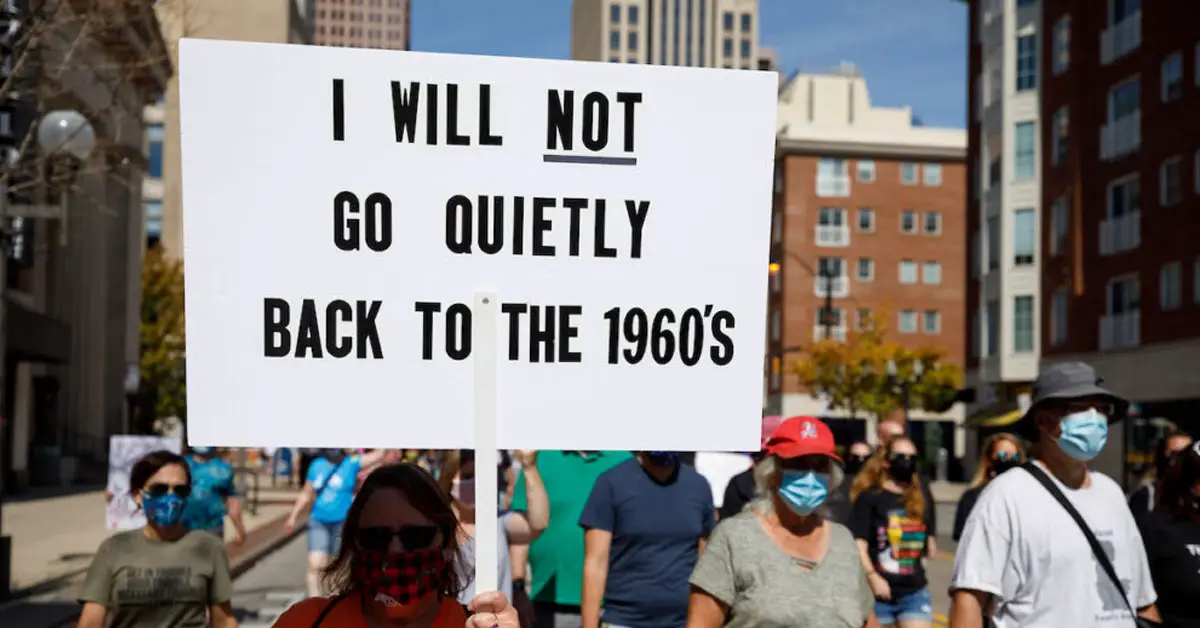News Arizona – US: Amidst Chaos and Confusion, Arizona Supreme Court Upholds 1864 Abortion Ban
The recent ruling by Arizona’s highest court to enforce a 160-year-old abortion ban has sent shockwaves through the healthcare landscape in the state. This decision has significant implications for both healthcare providers and patients seeking abortion services.
Challenges Faced by Abortion Providers
- Immediate Response: Dr. DeShawn Taylor, founder of the Desert Star Institute for Family Planning, had to quickly adjust her clinic’s schedule to accommodate the ruling’s potential impact. She and her staff worked tirelessly to ensure that existing appointments were not disrupted.
- Uncertainty and Anxiety: Dr. Jill Gibson from Planned Parenthood Arizona highlighted the anxiety among patients caused by uncertainty about appointment cancellations. The lack of clarity regarding the ruling’s timeline added to patients’ distress.
- Continued Services: Despite the ruling, Planned Parenthood Arizona and other clinics in the state remain committed to providing abortion services, albeit under heightened legal scrutiny.
Legal and Political Landscape
- Enforcement Timeline: The court’s decision is currently on hold for 14 days pending further legal review. Afterward, a 45-day period is mandated before the ban can take full effect, allowing time for legal challenges and potential legislative actions.
- Political Responses: Governor Katie Hobbs and other Democrats have called for legislative action to repeal the 1864 law. However, attempts to do so have faced opposition from Republicans, indicating a contentious political battle ahead.
Impact on Patient Care
- Access Challenges: The looming ban threatens to limit access to abortion services, particularly for vulnerable communities and those with limited resources.
- Legal Protection: Despite assurances from Arizona’s Attorney General that prosecutions will not occur during her tenure, concerns remain about the chilling effect on abortion access and healthcare providers’ legal vulnerability.
Looking Ahead
- Voter Influence: A coalition of reproductive rights organizations aims to address the ban through a ballot measure, emphasizing the importance of public opinion in shaping abortion policies.
- National Context: The Arizona ruling reflects broader debates on abortion rights and state vs. federal authority, with implications for the upcoming elections and national policy discourse.
Historical Context and Public Perception
- Origins of the Ban: Understanding the historical roots of Arizona’s abortion ban sheds light on its enduring impact. Enacted in 1864, the law reflects early 19th-century attitudes towards reproductive rights and the evolving role of medicine in regulating women’s bodies.
- Medical Progress vs. Legal Constraints: Advances in medical understanding and technology have transformed abortion care, yet legal restrictions persist, creating a dichotomy between healthcare advancements and legislative limitations.
- Public Opinion Dynamics: The debate surrounding abortion rights remains a contentious issue, reflecting diverse perspectives on morality, autonomy, and government intervention in healthcare decisions.
Community Response and Advocacy Efforts
- Community Mobilization: Advocacy groups, healthcare providers, and concerned citizens have mobilized to challenge the ban through legal avenues, public awareness campaigns, and grassroots organizing.
- Intersectional Impact: The ban’s impact extends beyond abortion access, intersecting with issues of socioeconomic inequality, racial disparities in healthcare, and the broader struggle for reproductive justice.
- Collaborative Solutions: Collaborative efforts between healthcare providers, policymakers, and advocacy groups are essential to navigate the complex legal landscape and protect individuals’ rights to comprehensive healthcare, including abortion services.
See CNBC News
Conclusion: Navigating Uncertainty and Upholding Rights
As Arizona grapples with the repercussions of the recent Supreme Court ruling, stakeholders across sectors must work collaboratively to uphold individuals’ rights to make informed healthcare choices. The intersection of legal, political, and healthcare factors underscores the need for nuanced, evidence-based policies that prioritize equity, access, and respect for diverse perspectives within the healthcare landscape. Through ongoing advocacy, legal challenges, and public dialogue, Arizona’s abortion ban ruling serves as a catalyst for broader conversations on reproductive rights, healthcare autonomy, and the role of law in shaping medical practice.
Questions and Answers:
Q1: What does the recent Arizona Supreme Court ruling regarding abortion entail? A1: The ruling upholds a 160-year-old abortion ban, causing chaos and uncertainty in healthcare settings.
Q2: How are healthcare providers and clinics responding to the ruling? A2: Providers are navigating legal challenges while ensuring continued access to abortion services and addressing patient concerns.
Q3: What legal and political factors are influencing the situation? A3: The ruling reflects broader debates on reproductive rights, state vs. federal authority, and ongoing advocacy efforts.
Q4: What role does community advocacy play in addressing the ban’s impact? A4: Advocacy groups are mobilizing to protect reproductive rights, challenge legal constraints, and promote equitable access to healthcare.
Q5: What are the historical and societal contexts shaping discussions on abortion rights? A5: Understanding the historical origins of the ban and public perceptions helps contextualize current debates and advocacy efforts.

